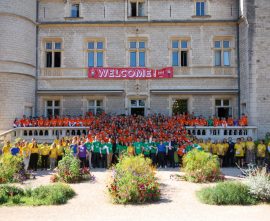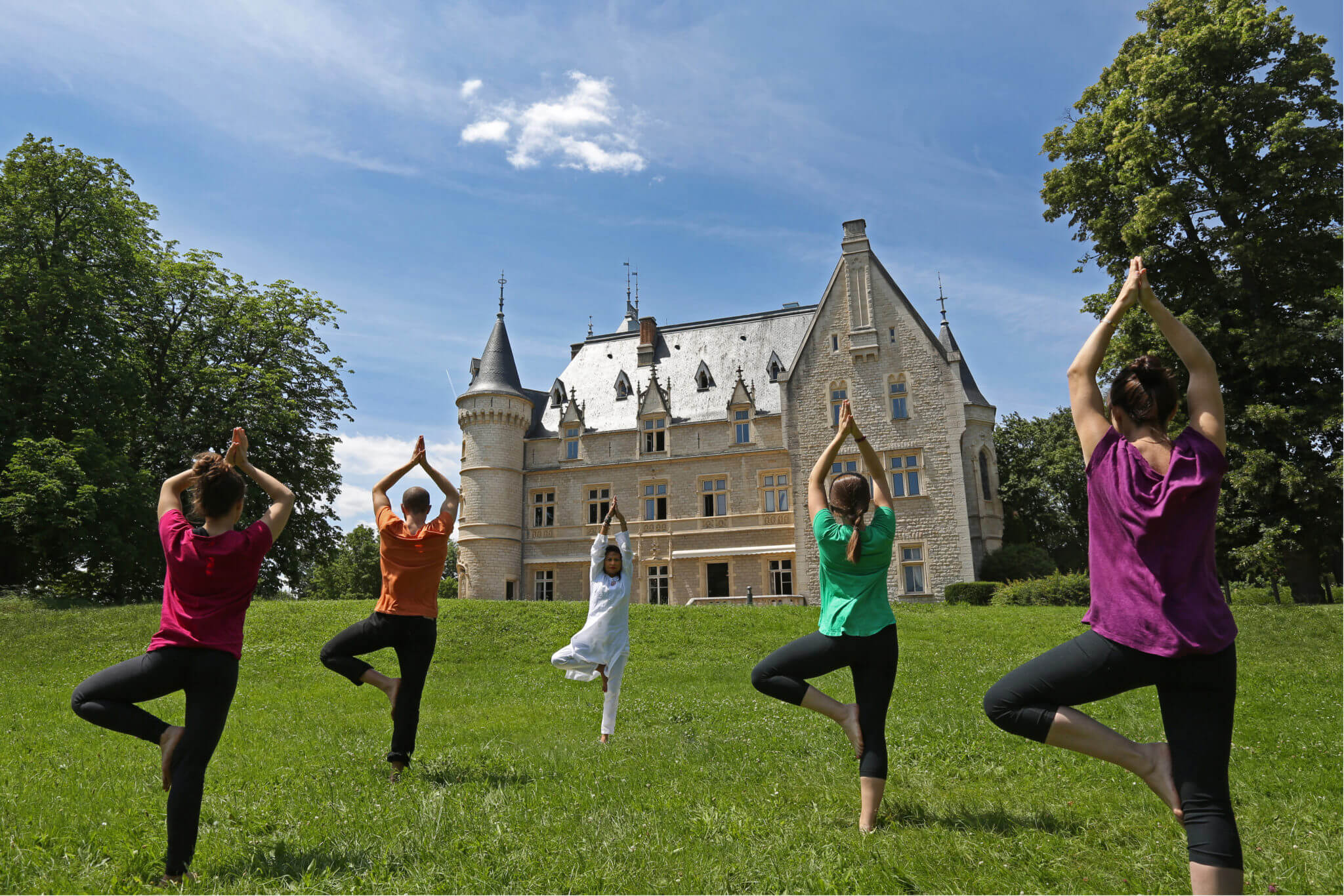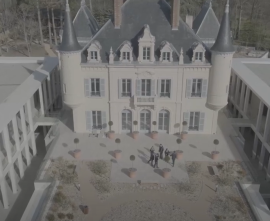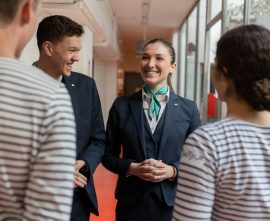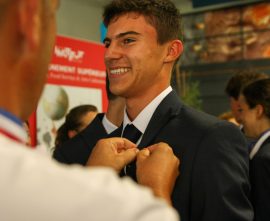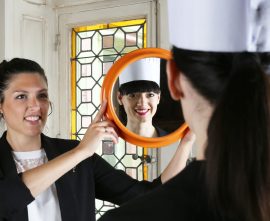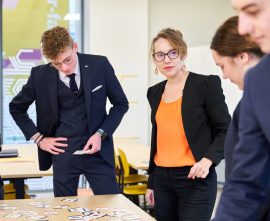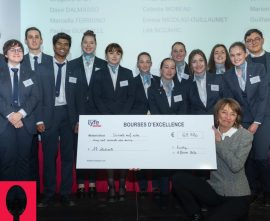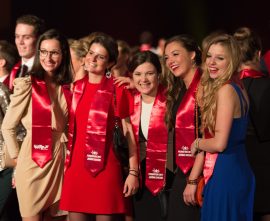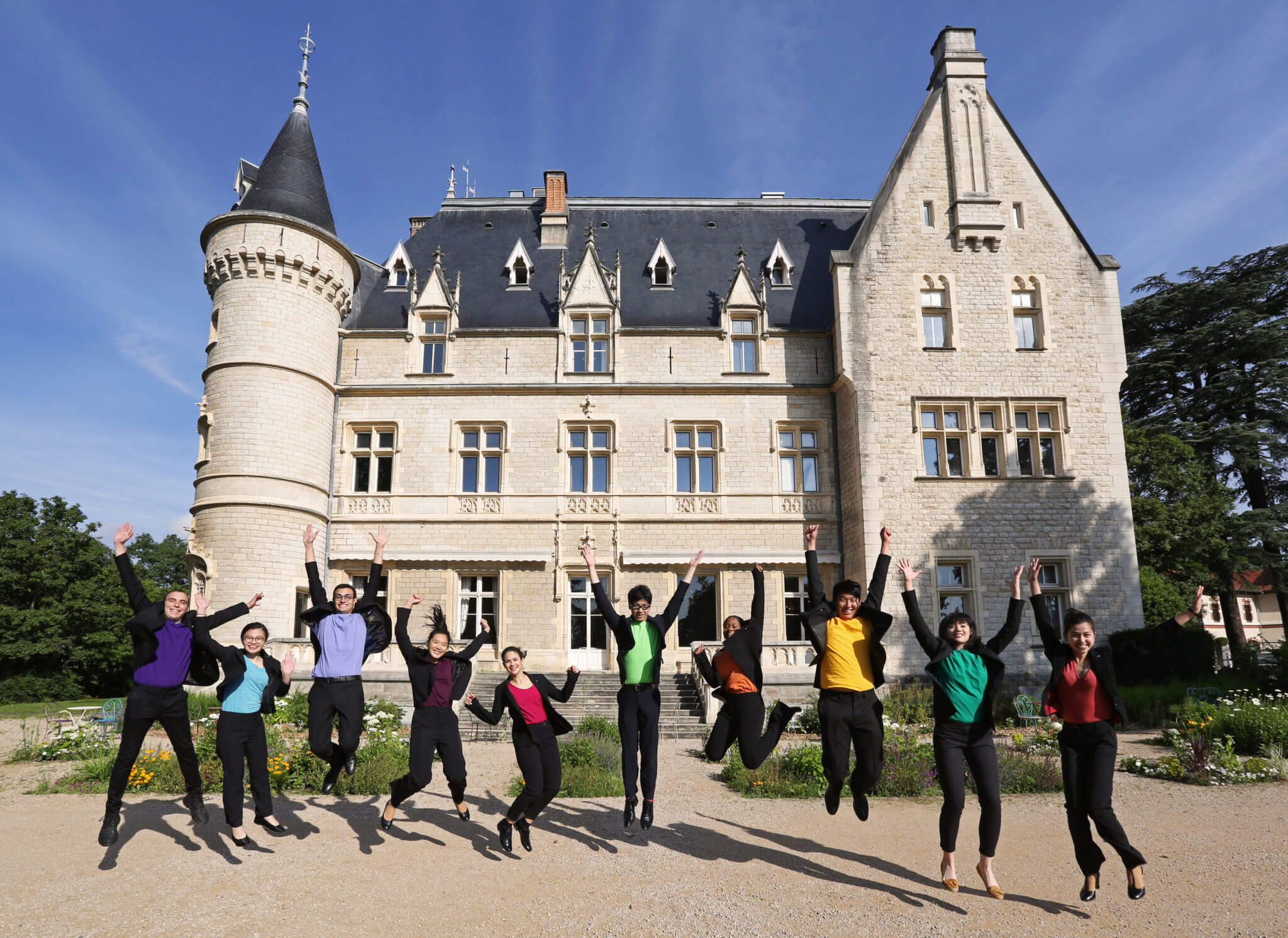Graduate insight with Aymeric Penven
Faire défiler la pageAymeric Penven, a 2017 graduate of the Master’s Degree in Culinary Leadership & Innovation now works at HEC Paris. He talks to us about his unusual career path.
Before completing the Alliance’s Culinary Arts Summer Program and graduating from the Master’s Degree in Culinary Leadership & Innovation in 2017, Aymeric Penven had initially trained in industrial engineering and materials science. After a meeting with Chef Thierry Marx, Aymeric decided to move into the restaurant and food sector. His training in culinary arts and sommellerie then began, and he gained experience both in the kitchen and front of house, working in some of Paris’s most renowned establishments. Now working for HEC Paris, he talks to us about his career path since graduating.
Can you tell us about your career since graduating from Institut lyfe?
After completing my thesis for the Master’s Degree in Culinary Leadership & Innovation on the study of food heuristics in partnership with a Parisian laboratory, I joined ShakeUp Factory when the Station F startup facility opened, to launch an innovation consultancy business for major food industry groups, as well as a foodtech startup accelerator.
After a few years, and an experience in Singapore that was cut short due to the COVID-19 crisis, I returned to France, where I joined HEC Paris in their Innovation and Entrepreneurship Center, to work on the development of several startup support programmes.
Tell us about your company and your responsibilities?
I currently work for HEC Paris as Director of Technological Entrepreneurship. In this role, I run a number of startup support programmes specialising in cutting-edge fields such as space, biotechnology and artificial intelligence.
I’m also helping to develop the school’s teaching, to increase the emphasis on entrepreneurship, innovation and the technologies that are transforming our society and economy.
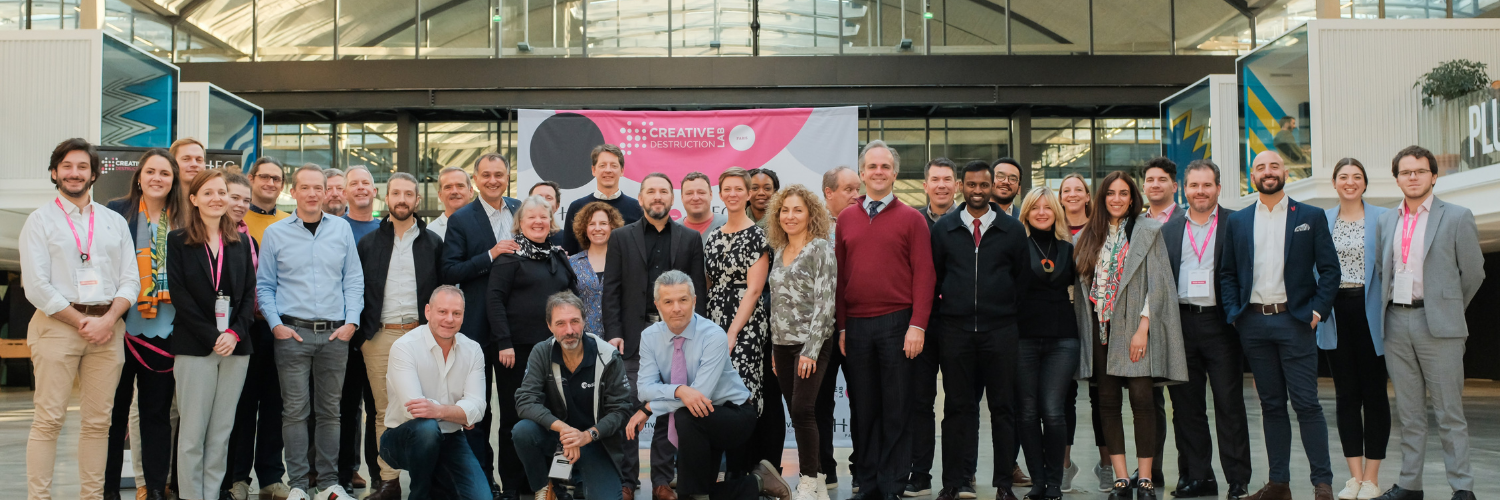
What challenges have you encountered?
I think the challenge that I find most stimulating is that of constant rediscovery and exploration. Sitting at the crossroads of several industries and jumping from one to another means pushing yourself out of your comfort zone on a regular basis. It requires you to accept your relative inexperience temporarily, and to overcome it to enrich your holistic understanding of the field.
What are you most proud of today?
The thing I’m most proud of today is continuing to support the entrepreneurs I’ve been lucky enough to assist over the years, and seeing the progress they’ve made and the successes they’ve achieved despite all the difficulties they have had to face. The entrepreneurial experiences of all of these founders are intimate events, and helping to resolve some of their crises can therefore be both profound and impactful.
How has Institut Lyfe helped you to attain your role and this result?
A number of the qualities needed in my current role are very similar to those developed at Institut Lyfe and in the world of hospitality. A sense of service and the desire to provide memorable experiences are skills that are invaluable in all professions that involve a strong focus on the human dimension as well as high-level clients.
In the same way, Institut Lyfe naturally trains you to evolve in multicultural and demanding environments, which are also reflected in the tech and startup sectors.
Does your training and pathway at Institut Lyfe continue to open doors for you?
Over and above the skills I acquired at the institute, the more technical aspects of my training are still useful to me today. For example, when we created a partnership between the HEC Paris Incubator and Hectar, the campus dedicated to agricultural transition co-created by Xavier Niel, my experience in foodtech was invaluable in the creation of its agtech/foodtech startup accelerator.
I also teach courses at HEC Paris focusing on the fundamentals of foodtech, food behaviour and the impact of what we eat, in order to convey the complexity of this industry to an audience that is not familiar with it.
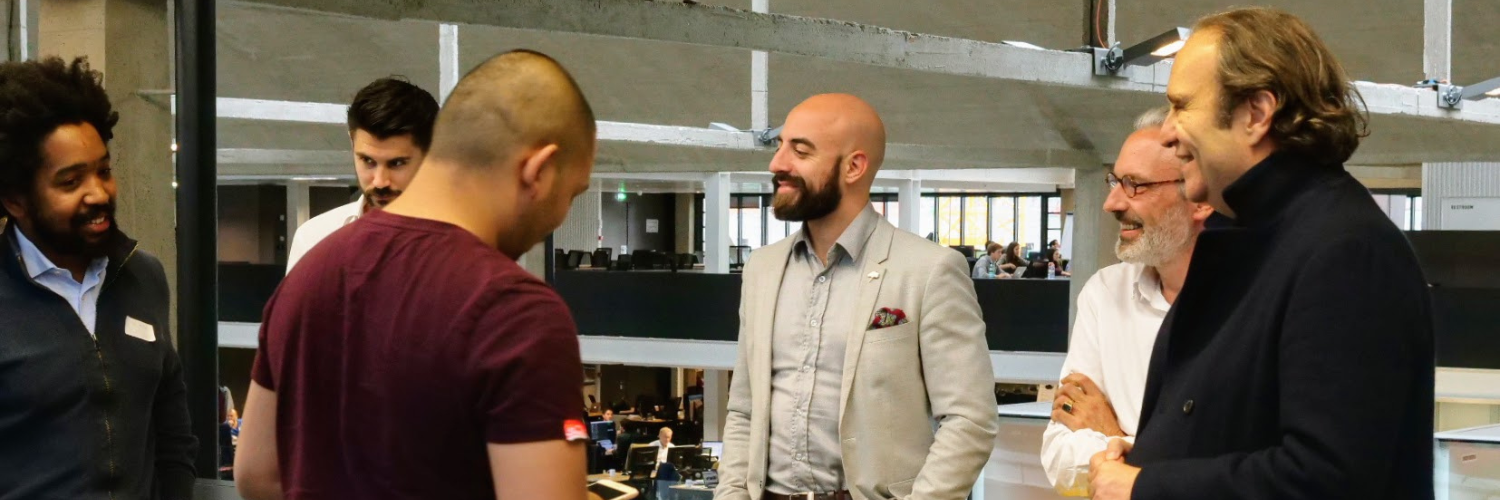
What would you say to students who want to get into this industry?
Catering and hospitality professions are difficult ones. I’ve met many people over the years who, after years in the industry, were looking to get out and retrain. While I understand that sentiment, I’m convinced that we should be proud of our culinary and hospitality backgrounds, as well as the qualities nurtured by these professions.
Beyond the more technical aspects of these careers, the people skills they teach are remarkable. A profile that is demanding and disciplined, but also people-oriented, with a taste for beautiful things and memorable experiences, is a precious resource in the world of startups and education alike.
Interested in joining the Master’s Degree in Culinary Leadership & Innovation? Our teams are on hand to answer all your questions!

